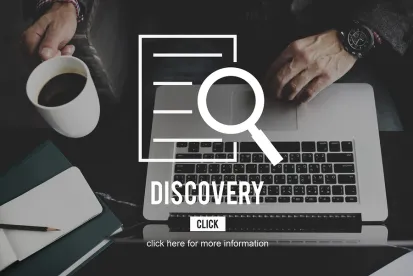We’ve all been there. You are in active litigation and, as the attorney, you are required to abide by a variety of rules related to discovery and, in particular, the discovery of electronically stored information. Your client, on the other hand, is giving substantial pushback on the scope and processes of collecting the responsive documents. In federal court, you have an obligation under Rule 26(g) to sign discovery responses and objections and to certify that, to the best of the person’s knowledge, information, and belief formed after a reasonable inquiry:
-
with respect to a disclosure, it is complete and correct as of the time it is made; and
-
with respect to the discovery request, response or objection, it is:
-
consistent with these rules and warranted by existing law or by a nonfrivolous argument for extending, modifying, or reversing existing law, or for establishing new law;
-
not interposed for any improper purpose, such as to harass, cause unnecessary delay, or needlessly increase the cost of litigation; and
-
neither unreasonable nor unduly burdensome or expensive, considering the needs of the case, prior discovery in the case, the amount in controversy, and the importance of the issues at stake in the action.
-
If you allow your client to self-collect and don’t oversee the collection, you have not supervised your client and are in violation of the rule. And the federal courts are making note of it. In the 2020 case of EEOC v. M1 5100 Corp. (Southern District of Florida), after a paltry production of documents, Defendant’s counsel admitted that Defendant “self-collected” responsive documents and information to the discovery requests without the oversight of counsel. The client’s self-interested parties and employees of Defendant conducted the search and collection.
Self-collection in and of itself is not necessarily evil (depending on the circumstances); self-selection, however, is a problem. The attorney must advise, supervise, and have knowledge of the process utilized, especially when the collector is self-interested. Otherwise, there is no way the attorney can make the representations required under Rule 26(g)(1). The Court in EEOC v. M1 5100 reminds us that an attorney’s signature on discovery responses is not a “mere formality”; rather it is a representation to the Court that the discovery is complete and correct at the time it is made. Abdication of the duties to assist with the search, collection, and production is “improper and contrary to the Federal Rules of Civil Procedure.” See EEOC v. M1 5100.




 />i
/>i

